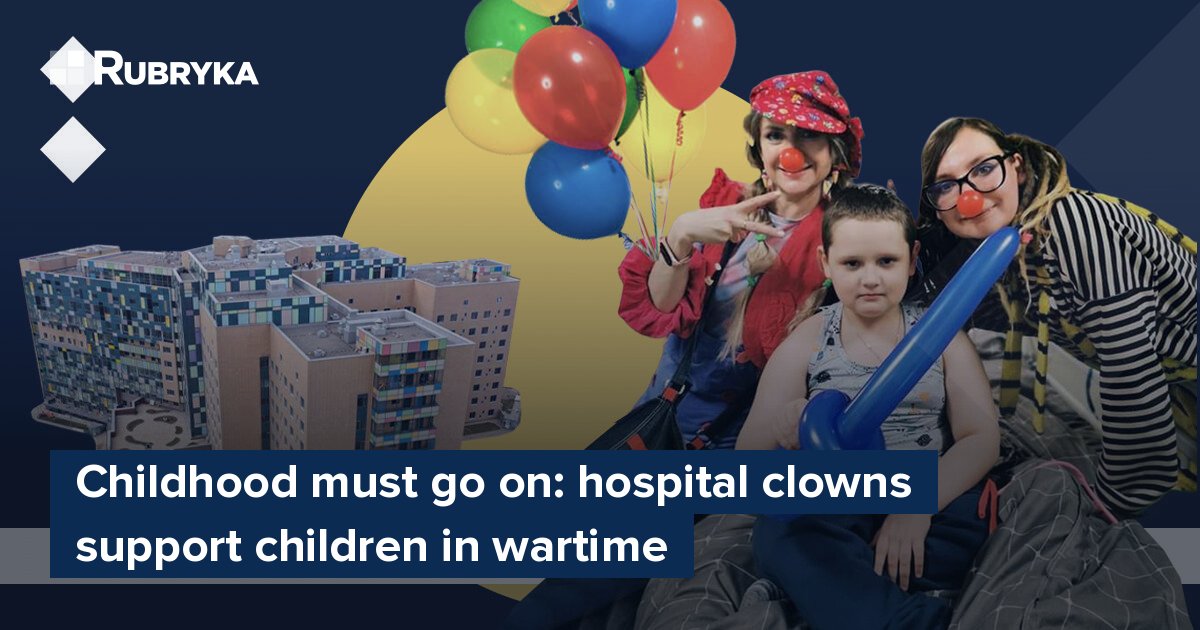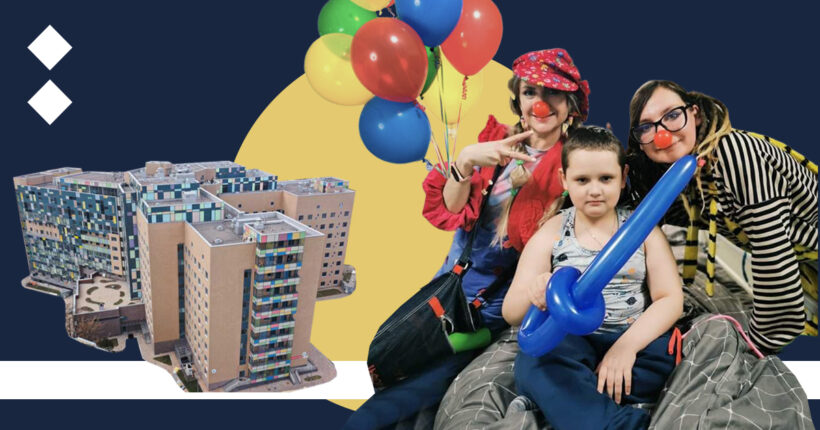
What is the problem?
Ohmatdyt is a diagnostic and treatment facility in Kyiv that provides assistance to the youngest patients — children. People come here with the most complex diseases — genetic disorders and cancer. With the beginning of Russia's full-scale aggression against Ukraine, the hospital's profile expanded. Currently, there are about 1,000 patients here. In particular, these are children who suffered from military aggression, lost their parents, have no limbs, and have seen death. Their childhood is limited by hospital walls, and their emotional state is often determined by what they have experienced.
What is the solution?
Hospital clowning can help children distract themselves from difficult circumstances, feel joy again, and simply smile. The term clowning is about emotional support and how not to forget to enjoy life even during illness. Hospital clowns are certified specialists who work in hospitals around the world. Their job is to provide emotional support to children and their loved ones in the hospital. With hospital clowns, children more easily overcome stress and adapt to the hospital conditions. Such specialists can accompany children even during surgery and solemnly welcome little heroes after complex hospital procedures.
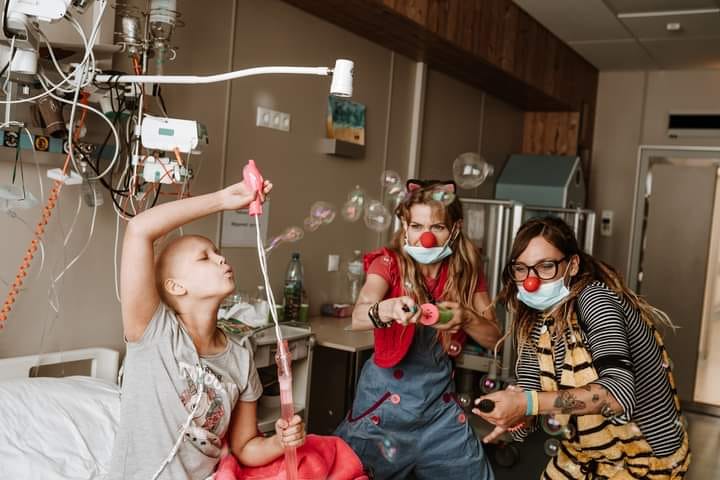
Photo: Kostyantyn Holinchenko
How does it work?
One day, everything changed
Olha Bulkina, a certified hospital clown, told Rubryka about little hero Danya. Bulkina works in the biggest national children's specialized hospital in Ukraine, Okhmatdyt.
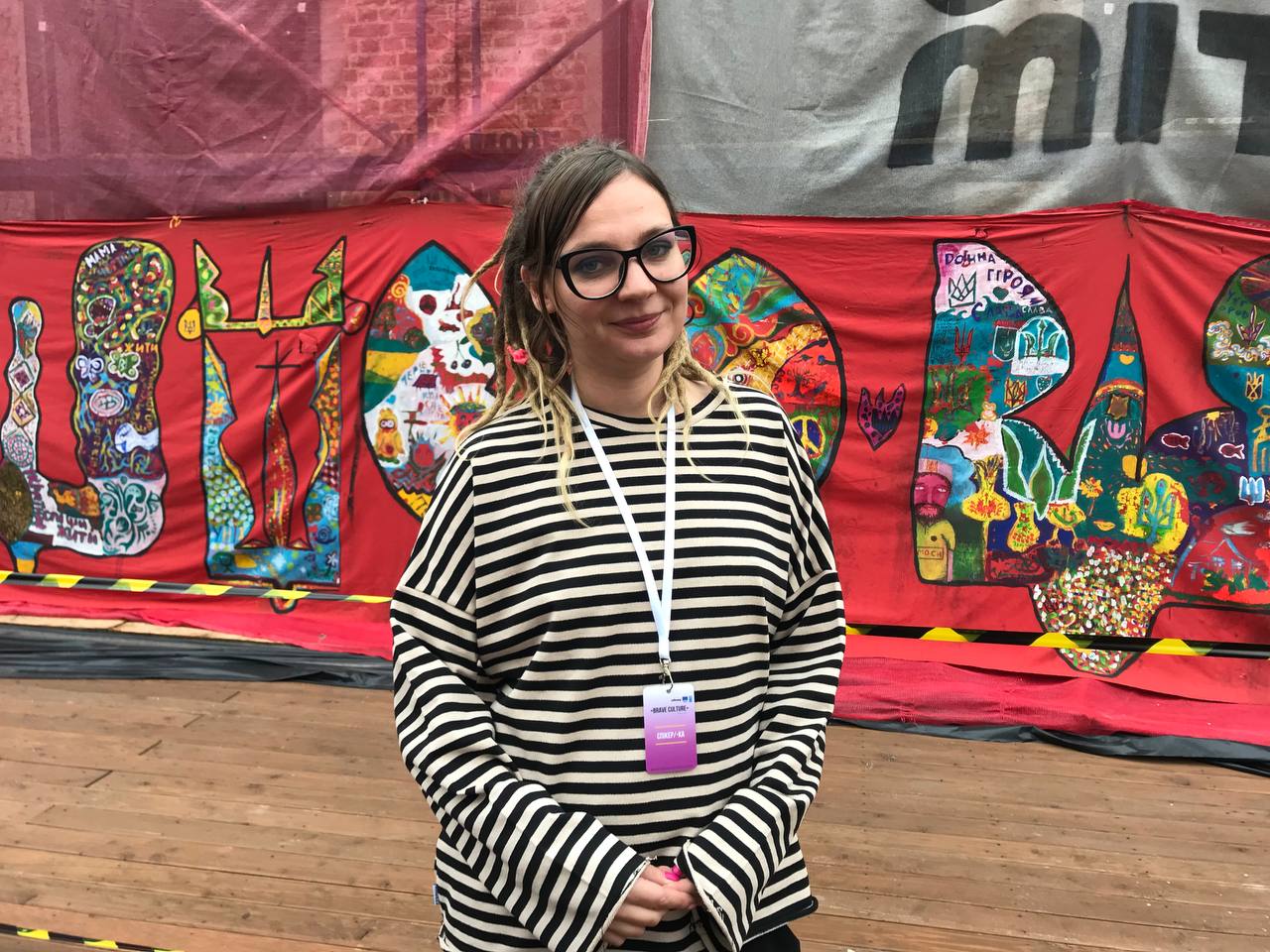
Olha Bulkina. Photo: Olena Strelchenko
Previously, Bulkina worked on Ukrainian television for more than ten years, but everything changed after her father's illness. He was diagnosed with cancer five years ago. Since then, the daughter spent all her time with her father and even celebrated her birthday in the hospital. According to Bulkina, that day, the gloomy atmosphere of the oncology intensive care unit changed — simple things helped: funny birthday cardboard caps — the usual attributes of the holiday.
Fortunately, Bulkina's dad's disease went into remission, and Bulkina herself decided she wanted to continue helping others.
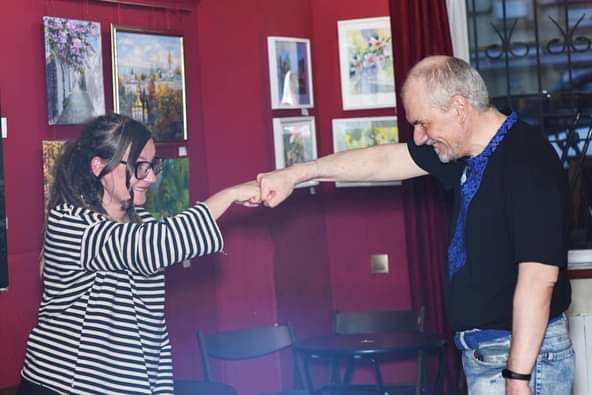
Photo: Tetyana Bondarenko
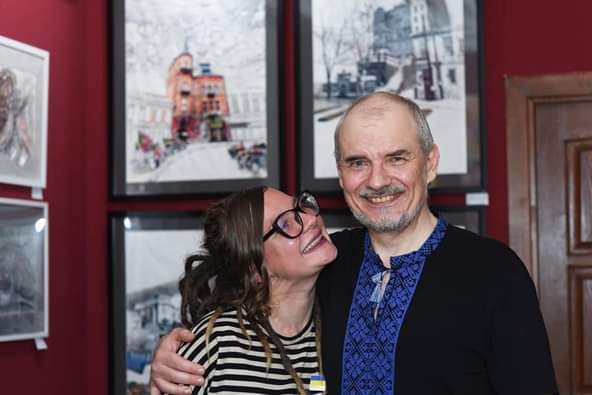
Bulkina and her dad. Photo: Tetyana Bondarenko
Bulkina began visiting children at the Okhmatdyt hospital, so the clowness Boo was born.
To be able to work as a hospital clown, Bulkina had to undergo special training, so she entered the Italian professional school of hospital clowns and, after graduation, became an honorary member of the Italian organization Soccorso Clown. After returning home, Bulkina became the founder and trainer of the first Kyiv school of hospital clowning.
"In Ukraine, unfortunately, such a profession does not yet exist in the register of professions, but I dream of it being there, and I work hard on it," says the hospital clown.
Currently, only eight such specialists work in Ukraine.
"Hospital clowning is not performative art. We don't have heavy make-up or the usual costumes. This is precisely the work with each child individually," adds the heroine.
This year, Bulkina, with the support of the Tabletochki Foundation, created the Bureau of Smiles and Support BSS to develop the hospital clowning in Ukraine. The organization's goal is to create a volunteer community and work in hospitals to benefit young patients.
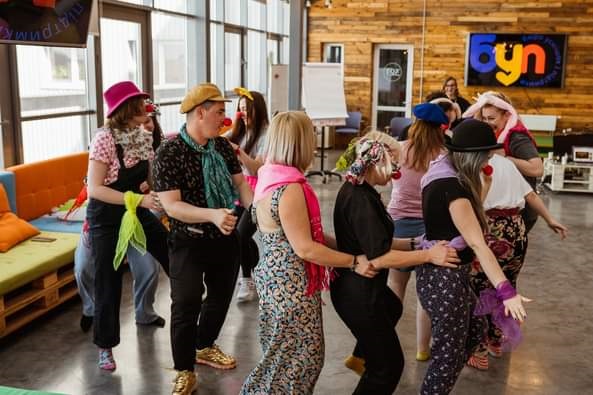
Photo: Kostyantyn Holinchenko
You can say no to a clown
Bulkina spends most of her time in the hospital. Before the full-scale invasion, she and her team mostly worked in "difficult" departments, such as oncology and neurosurgery. Bulkina also works with palliative patients — children who, unfortunately, have not been helped by treatment.
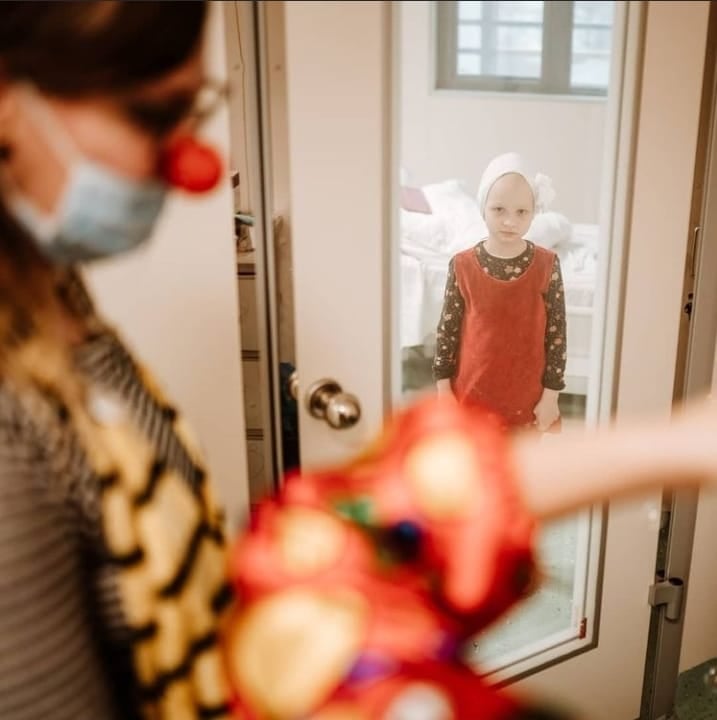
Photo: Kostyantyn Holinchenko
"We let the child experience any emotion they need. There are no bad or good emotions — all emotions must be experienced, and then the child will grow into a healthy personality. If we knock on the ward and ask, 'Can we come in?' and the child says, 'No!' then we apologize and close the door. This is the only opportunity in the hospital for a child to say 'No' to someone. They cannot say, 'Mom, I don't want to go for an injection,' 'I don't want to go for an operation,' 'Doctor, don't hurt me,' but they can say no to a clown," Bulkina explains.
"You have the right to be happy"
The hospital clown adds that together with others who care, they started doing weekly concerts for the children and staff of the hospital, as well as beauty days. For this, beauty specialists come to the hospital and help everyone who wants to feel better and like themselves.
"Children struggle with their illnesses and are stressed because of the war. They read their parents' emotions, who are constantly watching the news and are nervous. It is necessary to comfort everyone, and culture is one of the ways. In my case, culture is clowning, theater skills, and psychology. This profession combines cultural and social spheres," says the hospital clown.
Bulkina shared that working as a clown in a hospital during the war taught her that culture and creativity are very driving forces.
"Children who have experienced horror do not need pity but a sense of normalcy. Therefore, they need such concerts, clowns, and beauty days. No one lies to children — they know there is a war and missiles are flying over Ukraine. Yes, there is a war. Yes, you are in the hospital. Yes, you are legless. But you have the right, like every person, to be happy, rejoice, and receive emotions that give you the feeling that you are alive. Childhood must go on despite the circumstances," says Bulkina.
Does it really work?
"I have friends now"
Children love hospital clowns very much. After all, together, they overcome fears and difficult times. These friendly relations are not here and now — this is a lifelong friendship. Bulkina shared one of these stories with Rubryka. "I have a six-year-old friend, Danya, from Chernihiv. He and his family came under fire when they tried to evacuate. With numerous injuries and a hole in his leg, Danya ended up in Okhmatdyt."
The boy's mother also had severe injuries, so the family was in the hospital for a long time.
"Danya spent a lot of time in bed. Doctors saved his life, and we became friends. We painted together and went to concerts. He, a child who suffered from shelling, told me that here in the hospital, he finally found friends — us, hospital clowns," Bulkina says with a smile. "I think that this is a very cool story about life, about the fact that despite the horror that happened to the child, he is happy that he found friends after getting here, to the hospital."
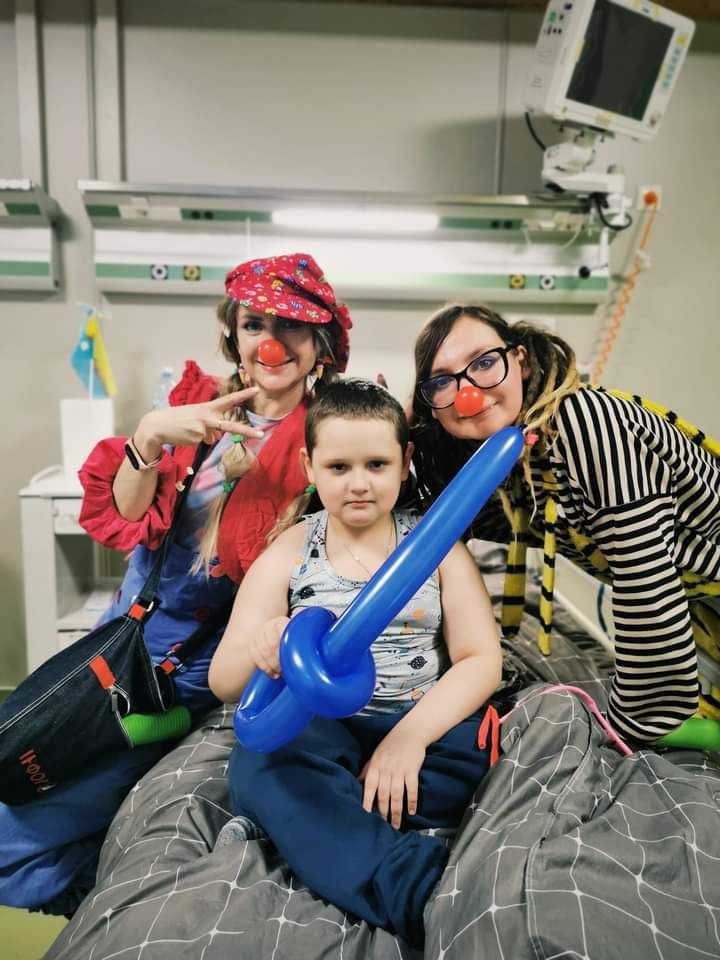
Danya with friends. Photo from Bulkina's archives
This is just one story of a strong friendship between children and hospital clowns, but there are thousands of such stories. This is the story of just one little boy, but it contains the strength of spirit and the vast world of millions of children. Especially now, when a terrorist country is trying to destroy the lives of all Ukrainians, and children and adults need support.
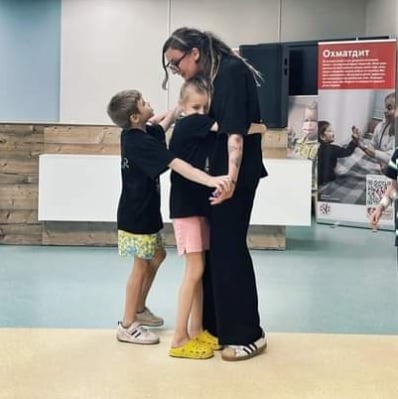
Photo from Bulkina's archives
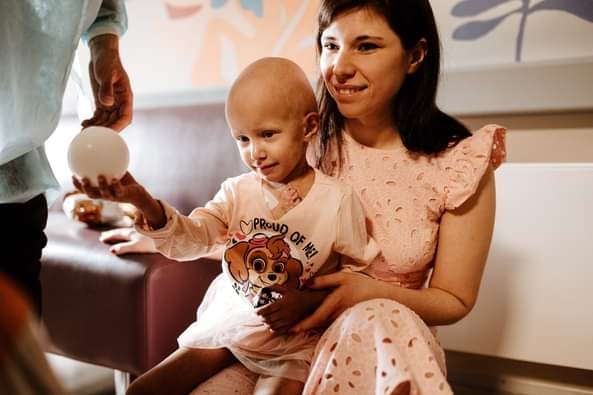
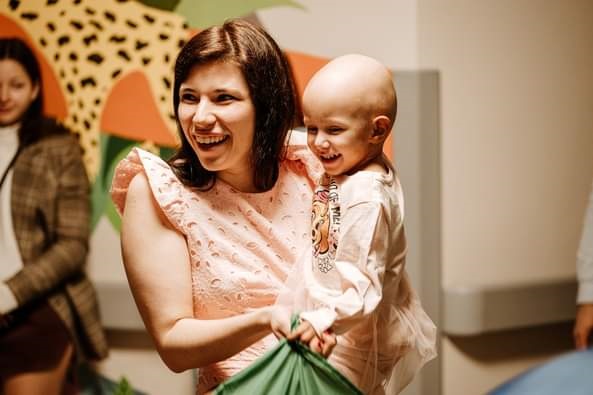
Photo: Kostyantyn Holinchenko
Newsletter
Digest of the most interesting news: just about the main thing



